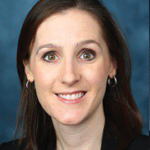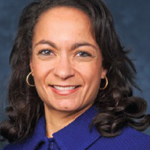Professionally, I feel the most successful when I am working on projects that I enjoy and have meaning to me. This past fall, I attended the Association for Academic Surgery’s Early Career Development Course. Amazing course, but also somewhat anxiety provoking. Many of the attendees and presenters had laser focus and a clear roadmap of their future and associated successes: get this institutional grant, followed by this society grant, then some small national pilot grants, and BOOM! Multiple R01s and sustained academic success. I am, instead, launching multiple projects in different realms—rhinology, medical education, outcomes, and informatics—and allowing them to grow organically. Hopefully, this is another “different from the norm is not wrong” scenario! I suppose time will tell. Based on discussions with my mentors, [I believe that] as my career matures some of these projects will continue while others will fall by the wayside. In the meantime, I’m curious and excited to see where they take me.
Explore This Issue
July 2018TS: I took the “easy” path to academic success but didn’t realize it at the time. I simply succumbed to my drive and overworked the first 10 years after obtaining my first academic job. Interestingly, this approach was promoted by my primary mentors at the time. I didn’t have much of a life outside of medicine. I didn’t have children. There were really no “distractions.” Now I realize how immature I was and that my situation was barely sustainable for me and completely out of the question for anyone who wants a life with balance. Now when my mentees ask me: “How did you do it?” I explain how I did it but do not recommend that path to anyone. Now, I emphasize teamwork and collaboration, both at home and on the job. Success is seen in a working, functional, productive and happy team (and family). Single-minded individuals just get in the way. I used to get in the way sometimes. I’m sorry about that.
I recommend a book called Finding Meaning In The Second Half of Life: How to Finally Really Grow Up by James Hollis (Penguin, 2005). This should really be required reading for those entering into their first real job after a long period of training. It’s time to live your life, not someone else’s.
Established Mentorship Relationship

Dr. Lavin

Dr. Thompson
Mentee: Jennifer Lavin, MD, MS, is an attending physician at Ann & Robert H. Lurie Children’s Hospital of Chicago and assistant professor of otolaryngology–head and neck surgery, at Northwestern University Feinberg School of Medicine in Chicago.